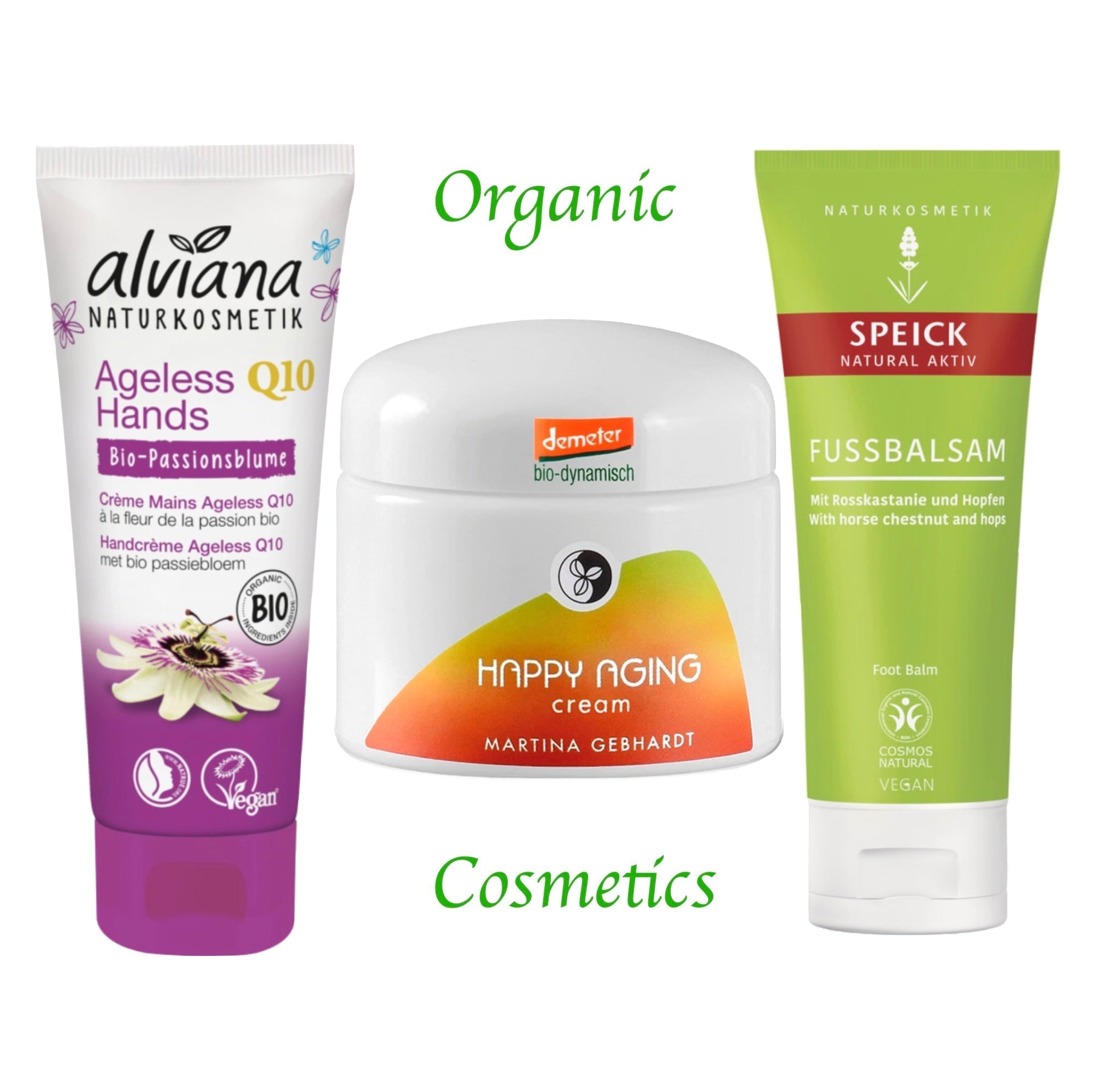
Organic Cosmetics: Why We Choose Them and Recommend Them to Friends
Regular use of cosmetics with organic oils and plant extracts gradually improves the condition of the skin. The skin becomes clearer, healthier, gains a natural glow, and its texture becomes more even. According to numerous customer reviews, switching to organic cosmetics has helped many people overcome long-standing skin issues such as acne, sensitivity, and dullness—both of the skin and hair.
For example, cosmetics certified by NATRUE strictly prohibit the use of:
- Synthetic fragrances and dyes
- Ingredients derived from mineral oils
- Genetically modified substances
- Irradiation of ingredients or finished products
- Animal testing of ingredients or finished products
Natural cosmetics certified by COSMOS also exclude:
- Aluminum salts (ACH)
- Synthetic fragrances and dyes
- Silicones, parabens, and mineral oils
Such products:
- Are made of 99.9% naturally derived ingredients
- Are free from gluten and lactose
- Have undergone dermatological and allergological testing
DEMETER standards for organic cosmetics are among the strictest in the world. They require:
- At least 66% of ingredients must be grown on biodynamic farms certified by DEMETER
- The remaining ingredients must also be of organic origin
- Exceptions are made for water, minerals, salt, and emulsifiers
Our R and C Store proudly offers products that meet these high standards.
What Does “Organic” Mean in Cosmetics?
The term “organic” in cosmetics comes from organic agriculture. Only those ingredients derived from natural raw materials grown without the use of synthetic fertilizers, pesticides, or herbicides can truly be considered organic. Instead, natural fertilizers (such as compost) and biological pest control methods are used—like attracting beneficial birds and insects, and creating resilient ecosystems based on the principle of synergy.
Animals are raised in humane, natural conditions (for example, free-range), fed with organic feed, and are not exposed to growth hormones, antibiotics, or other harmful substances that could end up in the final product. Attention is also paid to water quality, the use of renewable energy sources, and eco-friendly packaging. Fair working conditions and decent wages are ensured for farmers and production workers.
This approach allows for the creation of products with enhanced properties. Organically grown plants and animals are generally healthier, stronger, and contain more biologically active substances that benefit humans. Despite the higher production costs, such products are significantly more valued in the market.
How to Recognize Organic Cosmetics?
To help consumers distinguish true organic cosmetics from regular ones, reputable international certification systems exist. These organizations inspect farms and producers and oversee the entire production process. The most well-known certifications include:
- COSMOS Organic
- NATRUE Organic
- ECOCERT/COSMEBIO
- USDA Organic
In the ingredient list, certified organic components are usually marked with a special symbol (e.g., *).

To be considered organic, a product must contain:
- At least about 95% plant-based ingredients of organic origin
- At least about 20% organic substances in the total composition (including water)